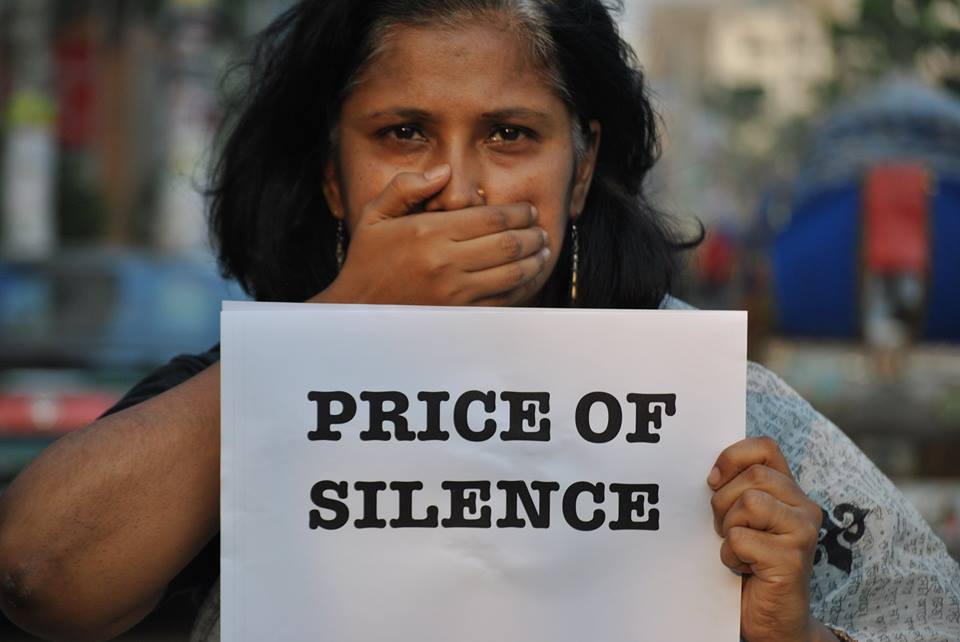
Culture of Silence
I spent my Sunday morning drinking coffee and studying the “Five Faces of Oppression” by Iris Young. In case you are wondering it is perfect brunch reading.
I am not sure that many folks understand the multitude of ways that we are oppressed by systems and institutions. Ways that we are taught to minimize our voices, our rights, our wants, and our needs.
Nor are we aware how this oppression manifests in our lives. I think we can all agree that we have systems that oppress groups of people in this country. We have symbols, norms, and rules that do not allow all of us to show up and participate in society as fully human.
As our best selves
So, what are the five faces?
The Five Faces of Oppression
•Exploitation
•Marginalization
•Powerlessness
•Cultural Imperialism
•Violence (or the threat of violence)
I have spent a lot of time meditating on powerlessness.
Ways that we have been taught not to speak up for ourselves or for others. Brazilian educational philosopher Paulo Freire believes that powerlessness is the strongest form of oppression because it allows people to oppress themselves and others.
Powerlessness creates a culture of silence.
We all pay a price for silence. Silence kills.
It kills our ideas. It kills our energy. It kills our relationships. It kills our communities. It kills our connections and it kills our humanity.
It perpetuates the illusion that some people voices matter more than others. That some folks are worthy of speaking and being heard, while others are not. It makes us think that we as individuals do not mean anything, so of course, our voice doesn’t either
- How many times have you sat in meetings and did not speak up, because you felt it would get you nowhere?
- How many time have you let family, friends or colleagues say blatantly false /racist/sexist things because you wanted to keep the peace?
- How many times have you stopped talking about your own oppression because you are tired of folks not believing you and you’re worried about your safety?
- How many difficult conversations has your organization not participated in because they seemed too overwhelming and y’all did not want to rock the boat?
Most people believe that if given the chance to speak up that they will. Very few actually do. Giving voice to problems save us. They save our businesses, our institutions and they save our lives. There are cost and consequences to creating cultures of silence, and I think we are seeing that play out in our country currently.
We have a kind of silence that goes so deep and is so insidious it literally is eating us alive.
We do not talk about race issues. We do not talk about class issues. We do not talk about religious oppression or gender issues. We do not talk about able-ism or ageism.
We pay a steep price
Not talking keeps us blissfully ignorant. Blissfully silo-ed. Blissfully segregated.
It is not discussing these issues that divide us, it is not talking about them that does.
Our silence has been socialized and institutionalized. That is not by accident.
How do we change this?
Cultures of silence can be changed. We can change it through education and by creating brave spaces for folks to speak a whole lot of truth.
We speak up in our personal lives and we invite others to speak. We invite others to dialogue.
We stop thinking about what we lose when we speak up and start thinking about what we gain.
We invite those folks on the margin that we never hear from, that we never see. Those folks that we have allowed negative images and stereotypes to speak for them. Let them tell their own stories, in their own languages, using their authentic voices.
Some of us are forced to be silent, but many of us are choosing to be. And it is literally killing us
We get free by using our voices to challenge those in power. We have to speak freedom to life.
Let’s go get free y’all
The “Culture of Silence” is based on work of Paulo Freire in his book The Politics of Education

